Allow me to start my presentation with the words I don’t know much. But I’ll try to present what I believe is happening and focus on what I think will be helpful for all of us to know.
.
First, to answer the question: Where do the ethnic forces stand? They, at least most of them, stand on the yet to be fulfilled promises of the 1947 Panglong, which, in brief, guarantees: Shared rule in the central government, autonomy or self-rule with their own laws governing the internal affairs, democracy and human rights, and the right to manage their finances called financial autonomy.
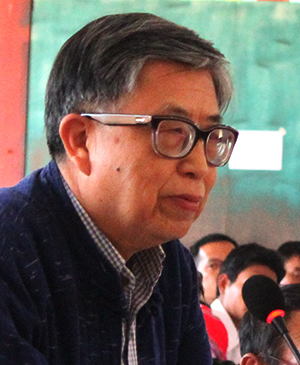
- The Burmese rulers, when they are fighting among themselves, remember Panglong, but tend to forget it once they have made up with each other. That was what an ethnic leader essentially informed the US ambassador who was visiting Chiang Mai on 13 October. This, to many, is the big reason why “a critical mass of EAOs,” to use the words of CSIS’s Gregory Poling, has not been sold on the NUG and its revolution.
- Currently the non-Burmese forces are divided into 4 categories:
- The first is hurt by what the Burmese SAC did to its Burmese people, receiving them with open arms and even fighting for them, hoping when it is won, they will not be forgotten again.
- The second remains outside of the conflict, maintaining relations with both sides. Arms and ammo for the resistance are believed to be coming from them.
- The third, seeing the country has become a land without a legitimate ruler, tries to win more territory, likely hoping that when the dust settles, they will be in possession of sizeable swathes of land, at least to bargain with whoever is in charge in NPT. Please remember, this was how the UWSA had won areas bordering Thailand in 1996.
- The 4th grouping says they had signed an agreement to make peace, not war. There’s nothing to gain when a superpower is a neighbor, and other powers keep calling for peace and dialogue. Also key neighbors: Thailand and India want stability in Burma, fearing that if Burma falls, they would be in trouble too. One leader I know is not tired of relating what a villager had told him years ago, after they returned from the negotiations in Rangoon. “General, we are not familiar with all these high-sounding words you’ve been telling us: human rights, democracy or federalism. But I do understand one thing: I’ve been running from place to place all my life and I’m tired of doing it again. Take as much time as you like to parley. But please, I beg of you, please don’t fight. That’s all I ask for.”
Today, we keep hearing that all people hate the SAC. Which I believe is true. But they are also sick of war, sick of endlessly moving from place to place. They want to return to their homes and get back to their normal life.
The PPST, which represents the 2015 agreement signatories, thinks, for these people’s sake, it ought to work in three areas: Humanitarian Assistance, Civilian Protection, and Inclusive Dialogue.
So when the SAC chief called for peace talks on 22 April, they jumped for it, hoping it could, by steps, widen up the space for all stakeholders to join. Since then, two rounds of talks have taken place. But so far, to their disappointment, the talks have not shown any signs of becoming an entry point for all.
Before stopping, let me answer another question. Posted by myself. Who, if not Superman, can solve Myanmar problem?
As you know, it was ASEAN Special Envoy Mr. Prak Sokhonn who had said even Superman couldn’t solve the Myanmar problem. I’m sure he’s right. Not because Superman wears his underpants outside. But because this is a job not for one Superhero. Each of them has tried sanctions, humanitarian assistance, war and peace talks. But none seems to be bearing fruit. So how about trying what Mr. Jurin Laksanawisit said when he became the leader of Thailand’s Democrat Party?
“Gone are the days of Superman.
Here come the Avengers.”
Which means if all the superheroes join hands together, we are sure to win.
Permit me to stop here and if there is time, I’ll report how the talks are going.
One thing at least is certain: If the regional or international community tries to have only the NUG and SAC hold talks, and assuming that these two reach an agreement, the fight will still not end there, as long as the rights of the non-Burmese people are not recognized.
Thank you.





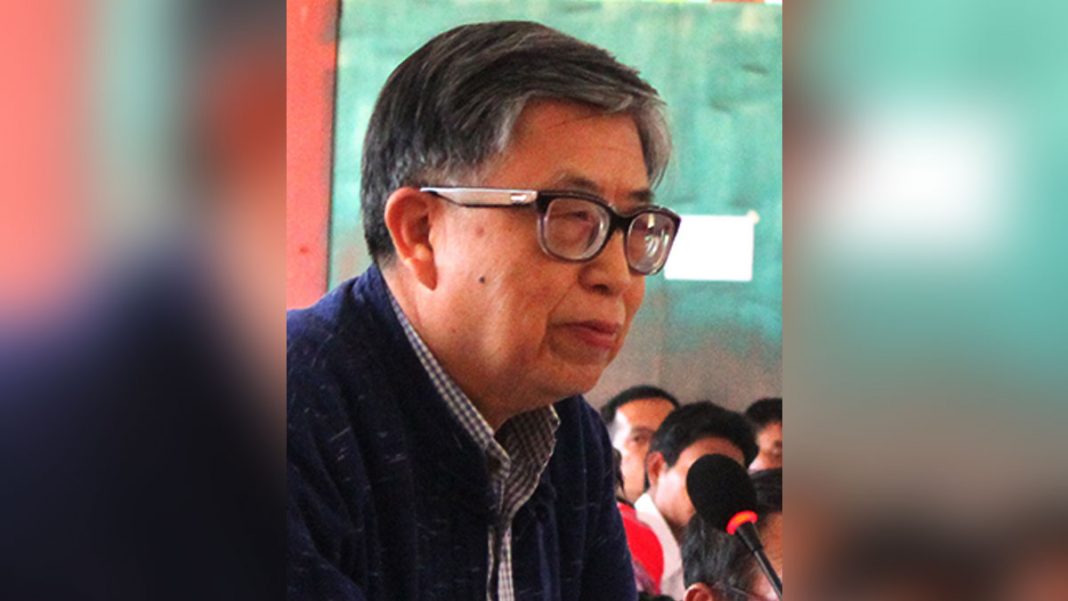
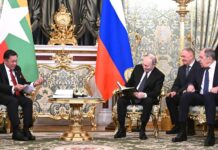
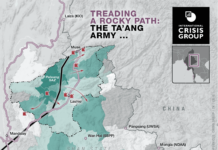

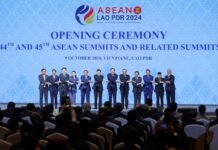
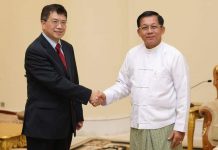






Leave a Comments